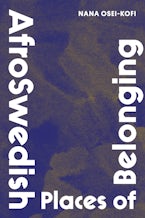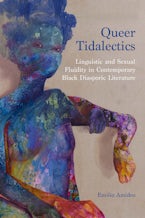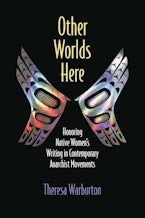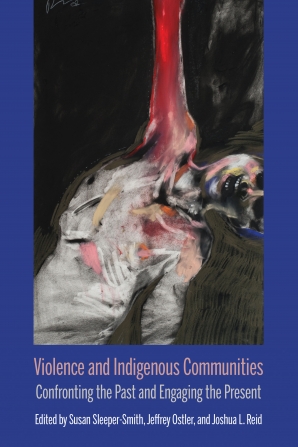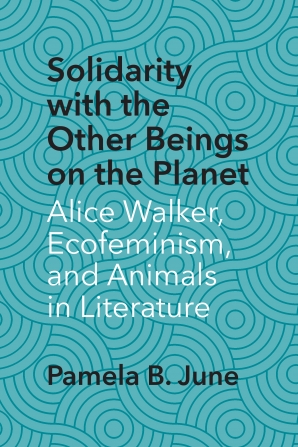Critical Insurgencies
 Critical Insurgencies: A Book Series of the Critical Ethnic Studies Association brings an interdisciplinary community of activists, academics, artists, independent scholars, and media makers together to forge new theoretical and political practices to—unsettle the nation state, neoliberalism, carcerality, settler colonialism, western hegemony, legacies of slavery, colonial racial formations and gender binaries, ableism, and challenge all forms of oppression and state violence—for generative future imaginings.
Critical Insurgencies: A Book Series of the Critical Ethnic Studies Association brings an interdisciplinary community of activists, academics, artists, independent scholars, and media makers together to forge new theoretical and political practices to—unsettle the nation state, neoliberalism, carcerality, settler colonialism, western hegemony, legacies of slavery, colonial racial formations and gender binaries, ableism, and challenge all forms of oppression and state violence—for generative future imaginings.
This series seeks to interrogate what it means to do critical ethnic studies work within, outside, and across a variety of locations, such as in education and the academy, community organizing, the arts and media, mass movements, intimate spaces, and more. Since theory and practice reside in multiple geographies and through multiple genres of work, Critical Insurgencies will engage diverse readerships and generate conversations that resist the ways that ethnic studies work can be limited by the historic separation between academic writing and popular texts.
Series editors: Michelle M. Wright and Jodi A. Byrd
Showing results 1-10 of 17
Filter Results OPEN +

The War on the Social Factory
Annie Paradise examines the expanding carceral processes of enclosure, criminalization, dispossession, expropriation, and disposability that mark the neoliberal "security” regime across the Silicon Valley and counterinsurgent strategies of mutual aid and co-generative, dynamic resistance to those forces.
AfroSwedish Places of Belonging
Draws on autobiographical narratives, documentary film, digital feminism, and queer organizing to grapple with AfroSwedishness as a coalitional identity
Colorblind Tools
Offering a transnational account of anti-Blackness and white supremacy that pushes against the dominant emphasis on change that pervades current racial theory, Marzia Milazzo demonstrates that colorblindness is neither new nor a subtype of racist ideology, but a constitutive technology of racism.
Horizon, Sea, Sound
This book imagines new reciprocal relationships beyond the competitive forms of belonging suggested by the nation-state. The book employs the tropes of the horizon, sea, and sound as a critique of nation-state discourses and formations.
Queer Tidalectics
Queer Tidalectics investigates how Anglophone writers James Baldwin, Jackie Kay, Thomas Glave, and Shani Mootoo employ the trope of fluidity to articulate a Black queer diasporic aesthetics.
Pink Revolutions
Pink Revolutions describes how queer politics in India occupies an uneasy position between the forces of neoliberal globalization, on the one hand, and the nationalist Hindu fundamentalism that has emerged since the 1990s, on the other.
Other Worlds Here
This book examines the interaction of literature and radical social movement, exploring how to address the limitations of contemporary anarchist politics through attentive engagement with Native women’s literatures. The author argues that anarchists must shift the paradigm that another world is possible to one that sees other worlds here.
Violence and Indigenous Communities
This interdisciplinary collection of essays recognizes a long history of genocidal violence against Indigenous peoples while emphasizing the agency of Native individuals and communities in genocide’s aftermath. Contributors provide historical and contemporary examples of activism, resistance, identity formation, historical memory, resilience, survival, and healing.
Identity, Mediation, and the Cunning of Capital
This book explores the role that identity politics plays in capitalism, in particular the ways in which capitalism thrives by fragmenting identity through multiple modes of mediation.
Solidarity with the Other Beings on the Planet
This book uses ecofeminist theory to analyze seven novels by author and activist Alice Walker, examining Walker’s approach to critical race studies and critical animal studies, as well as her responsibility as a moral guide.

The War on the Social Factory
AfroSwedish Places of Belonging
Colorblind Tools
Horizon, Sea, Sound
Queer Tidalectics
Pink Revolutions
Other Worlds Here
Violence and Indigenous Communities
This interdisciplinary collection of essays recognizes a long history of genocidal violence against Indigenous peoples while emphasizing the agency of Native individuals and communities in genocide’s aftermath. Contributors provide historical and contemporary examples of activism, resistance, identity formation, historical memory, resilience, survival, and healing.


